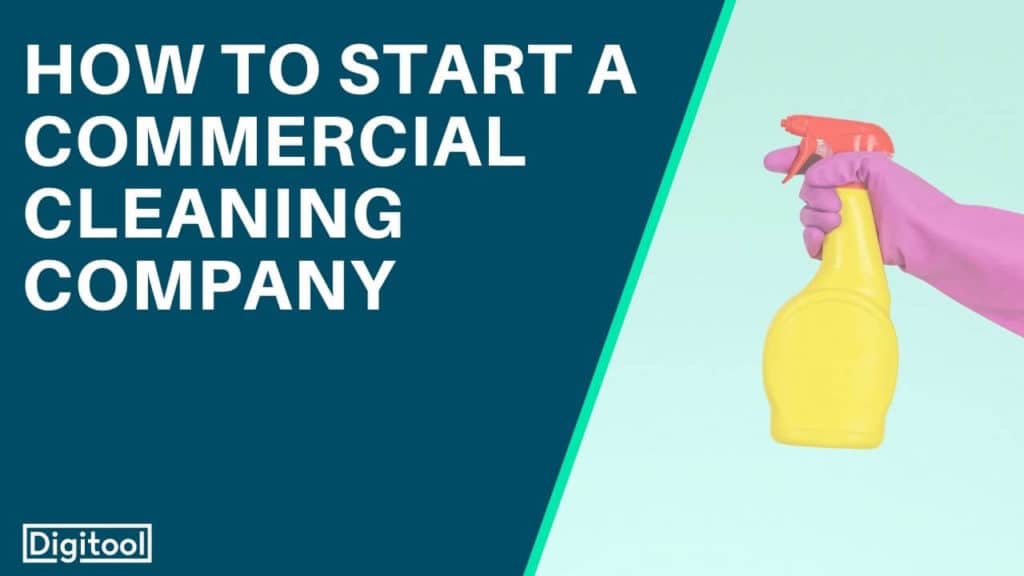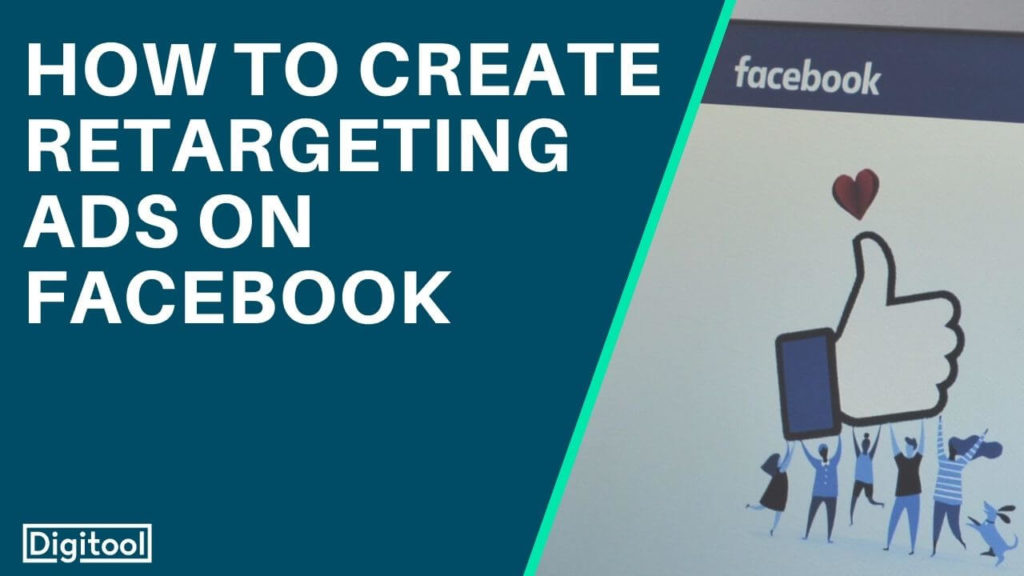The cleaning industry has grown year on year since 2011, according to the British Cleaning Council (Industry Trends Report, 2017), with growth being projected to continue through the upcoming years. It’s no wonder that more and more people are opening commercial cleaning businesses themselves to benefit from the increase in demand for outsourced cleaning services.
Indeed, starting your own business does carry significant benefits. It can be an incredibly rewarding experience, giving you the flexibility to make creative choices, and invest in your own growth at a pace that suits you. But while the idea of being your own boss seems like a liberating adventure, it’s not always fun and games, and building a successful commercial cleaning business from scratch takes considerable planning and hard work.
Here at Digitool, we’re passionate about helping small business owners succeed in their ventures. So, we’ve created a “how to” guide for people considering starting up their own commercial clearing business, taking you through some of the preliminary planning, basic research, and practical tasks involved with setting up your own company.
Calculating Your Commercial Cleaning Business’s Startup Cost

One of the benefits of starting a cleaning business is the ability to get it up and running on a shoestring budget, compared to other industry start-up costs. But that doesn’t lessen the need for financial planning.
A good place to start when considering a business venture is to calculate how much you’ll need to invest in order get you up and running, and for the foreseeable future. By no means is this initial calculation 100% accurate: many of the figures you’ll input will be an educated guess or estimate. Begin by looking at initial investment costs, together with expenses and assets for the next 12 months to gain an idea of the funds needed to sustain yourself over this period.
You may want to break it up like so:
12 month start-up investment = 12 month spend on assets + 12 month spend on expenses
Business assets include everything you need to purchase or pay for in order to carry out your service. For commercial cleaning these are the cleaning tools needed, along with products and uniforms. You’ll need a good initial inventory, but remember that there will also be repeat purchases over the 12 month period (and beyond!).
What equipment and supplies will I need to buy for my commercial cleaning business?
This list can be as lengthy as you need it to be and will depend on the types of spaces you’ll be cleaning as well as any extra specialisms (e.g. grease extraction or marble restoration) you’ll be providing. For general cleaning services, here’s a checklist you’ll need to get started.
If you choose to specialise in a particular cleaning service, look for specific suppliers offering products relating to this specialism. Most of these are very helpful if you give them a call and can advise you on what you might need. Here are some suppliers we recommend:
| Cleaning Specialism | UK and Europe | USA |
|---|---|---|
| General Cleaning | Bunzl Cleaning & Hygiene Supplies Arrow County Supplies C21 Hygiene Ltd |
Direct Solutions Nationwide |
| Carpet Cleaning | Alltec Cleanspec World of Clean Prochem Restormate |
Truck Mount Forums Namco Esteam Cleaning Systems Pro’s Choice Trinity Renewal Systems Pumptec |
| Floor Restoration | Tilemaster | Motor Scrubber Stone Pro Mytee |
| Oven Cleaning | World of Clean Dirt Busters |
Namco |
| Window Cleaning | Unger Grippatank |
Window Cleaning Resource Glass Renu (Glass repair service could be a fantastic upsell to your window cleaning business) J. Racenstein |
| Leather Cleaning | LTT Leathercare | Dr Leather |
| Automobile Cleaning | AutoCleanseUK | Dultmeier Sales Kleenrite Go Clean (.ca) |
| Mould Removal | The National Flood School |
To get more precise estimates on product spend, do some research online and in supermarkets on how much your items will cost. Remember that you can save money by buying in bulk or from wholesalers. You may also opt for a company van, in which case you’ll need to factor in costs for transport, including petrol, registration, insurance, possible repairs and upkeep.
Alongside your physical assets, there are also various expenses involved in running a commercial cleaning business. Some of these may be fixed cost (such as in a one-off training fee), and others may be variable costs that typically increase with company capital (such as bringing on more staff to help with increases in labour).
Potential expenses include, but are not limited to:
- Insurance(s)
- Petrol
- Parking
- Advertising and marketing (including hiring people to put this together for you)
- Gaining training or qualifications
- Business phone(s)
- Accounting services
- Employee wage(s)
- Your own wage
- Bank charges
No matter how much planning you do, there will always be unforeseen changes in your outgoings. Keep this in mind and sensibly consider how much money you will need in the bank month-to-month to conduct your business and add this to your start-up costs.
Hopefully you’ll now have a clearer picture of the costs involved in investing in your own cleaning business and surviving the first year before diving straight in the deep end.
Carrying Out Market Research Before Starting Your Commercial Cleaning Company

Market research is an important step in identifying gaps in the market, developing your business plan and finding a target customer base.
You may already have an idea of the type commercial cleaning you want to go into, be it pressure cleaning, window cleaning, office cleaning, industrial cleaning, hospital cleaning, or even crime scene cleaning. However, if this isn’t the case, seeing what the market currently offers in your area can help steer your choices in terms of the services you provide. If there is an abundance of carpet cleaning services in the area you plan to work for example, you might decide to steer clear of investing in deep clean carpet equipment.
A thorough market research plan will be two-pronged, looking at:
- Your potential competitors
- Your potential clients
Conducting market research on your competitors
Gaining a picture of what services and prices other cleaning businesses in your market offer can be a very valuable process. Be sure to undertake some basic research into your competitors online and create a spreadsheet or table to see what the most common services on offer are, and the areas that they operate in. You can even make enquiries to companies as a prospective client to get price quotes and ask how they take their payments. This is a very important step as it will help you gauge what the value of your work is and what prices you should be setting, as well as developing an idea of best practices for collecting payments.
Conducting market research on your clients
You may also find it useful to do some basic research on clients in your area to find out how you may gain a competitive edge. Get in contact with some potential customers to gain insight into their spending habits and what they look for in a cleaning company. For commercial clients, phone calls may be the best bet, but be sure to be very friendly and approachable to improve the chances of them becoming your clients down the line. Ask questions that reveal possible prices, payment options, irritations with current services, and the potential for more sellable services.
Some example questions to ask your potential clients:
- Do you prefer flat hourly rates, or different prices depending on the service offered?
- Are there any services your current cleaner does not offer that you would be interested in receiving?
- What kind of price would you be expecting from this service?
- Is there anything your current cleaner does that you find irritating or is cause for complaint?
- What do you look for when trying to find a cleaning service?
Extra background research may also be useful in ascertaining where your target clients could be. Where are there office blocks? Is there an area with a frequent turnover of retail shops? Where are the economic hubs? Are there any new developments due?
Given that the cleaning sector is a competitive market, you might also find that your market research helps you find a unique selling point by seeing what clients want and what is currently on offer. For example, some companies have taken on a green initiative and sell environmentally-friendly cleaning solutions for their clients. Start thinking about what benefits your company has over other similar companies and use this within your marketing strategy. What features of your service would be difficult for other businesses to duplicate? These will become your Unique Selling Points (USPs).
As part of your efforts to set yourself apart from other cleaning providers, you may want to gain professional qualifications in cleaning to become more specialist in a particular area, or simply to demonstrate your knowledge level.
Below are training providers in the UK, Europe and USA, split by their specialism:
| Cleaning Specialism | UK and Europe | USA |
|---|---|---|
| General Cleaning | BICSc | I.C.E |
| Carpet Cleaning | NCCA World of Clean |
IICRC |
| Floor Restoration | Tilemaster Nulife Floorcare |
Easy Stone Care Truck Mount Forums (online course) |
| Oven Cleaning | Dirtbusters TAAOC Oven Gleamers |
|
| Window Cleaning | FWC BWCA |
Window Cleaning School |
| Leather Cleaning | LTT Leathercare Leather Repair Company |
IICRC |
| Automobile Cleaning | AutocleanseUk | Chemical Guys |
| Mould Removal | The Restoration Academy UK IICRC |
IICRC |
The Logistics of Setting Up a Commercial Cleaning Company

Once you have gained an understanding of the money you’ll need to invest, prices you’ll be setting, and the overall marketplace, you might decide to go ahead with building your business and get the ball rolling.
Let’s go through some of the administrative steps needed to create your commercial cleaning business.
Choosing a business structure for your cleaning company
First and foremost: you’ll need to pick a legal structure for your company.
The steps you take to set up your company will depend on your legal structure, so choosing one early in the process is advisable. For US businesses, the IRS has a break down of the different business entities, for the UK, see Gov.uk’s page on the matter. Be sure to familiarise yourself with each entity model to ensure you get the most suitable structure. In principle, you should pick the simplest structure that your business model will permit, given that you can change to a different model in the future following growth or company changes. Most cleaning businesses register as a sole trader or limited company.
Choosing your commercial cleaning business name
In order to set up your company, you need to specify a name for your business.
In the UK, rules associated with choosing your name differ depending on whether you are a sole trader or a private limited company so be sure to read UK government advice relevant to your chosen business structure.
Registering a business in the USA will require you to obtain a business registration number and/or a federal Employer Identification Number (EIN), both of which can be done online via the IRS site. Requirements for starting and operating a business in the USA may differ state to state, so be sure to check your state government website as well. The IRS also offer a checklist for starting a business, giving basic steps to take towards operating a company.
Remember that a name reflects who you are as a company. Make it easy to recall and easy to spell and read, so as not to hinder your word-of-mouth referrals. It’s also worth checking that your name hasn’t been taken or sounds similar to another company name. Search the internet for your chosen name by inserting it into a search engine and checking business registers.
If you’re going to be setting up a website, it also makes sense to check that your preferred domain name for your site is available before settling on your name. For example, if you wanted to set up “Gina’s Cleaners” as a company, check that ginascleaners.co.uk, or ginascleaners.com is not already taken. You can use sites such as 123reg.com or TSOhost.com to search for available domain names. Having a domain name match your company name will help your online presence, add to your credibility, and make it easier for customers to find you once they know your name.
Similarly, you may want to run your potential company name through social media sites to check there are no businesses or groups with the same name, using Namechk.com.
Registering your commercial cleaning business
You’ve picked a company name and structure. If you haven’t registered your business during that process, this will be your next step!
Opening a Business Account with your bank
You are not legally required to have a business bank account to manage your company finances in the UK and USA, however it’s strongly advised that you do. While it might be tempting to use your current personal bank account to manage your business finances, this has its consequences, particularly when your business begins to take off. Having expenses in your dedicated business account makes it easier to sort and prove your deductions, ultimately saving you time and money. In the USA, for example, the IRS may look at your business to determine if it’s a business or hobby for deduction purposes; seeing transactions from a business account would help them determine it is a legitimate business. Similarly, for both US and UK business owners, being able to clearly see your income in your bank statements will prove useful at the end of the year when the time comes to do your taxes, whether you do these yourself or have an accountant for the task.
Though there are monthly charges involved with opening a business account, these are relatively low, and many banks waive these for new clients during the first year or two. It’s also common for banks to charge a fee per banking transaction. The easiest way to limit the effect of these charges on your business is to shop around various banks for the best deal, and always read the small print.
Educating yourself about health & safety, taxes, insurance and VAT
Being a business owner carries certain obligations and responsibilities, and the cleaning industry is no different.
Health and safety in the cleaning industry
You’re legally obliged to have an understanding of good health and safety in your work, both for your clients and your employees. It’s important for you to keep up to date with safety legislation relevant to your country of work and ensuring you are adhering to the standards set out, taking appropriate precautions and conducting risk assessments.
An easy way to ensure you are being compliant with health and safety is to take short courses to improve your knowledge. One cost-effective method is to take an online course, however many of the training providers mentioned earlier also feature in-person courses with introductions to health and safety.
Obtaining insurance for your cleaning business
Part of being a responsible tradesperson is ensuring you have the correct insurance to cover yourself and employees against claims which would otherwise be expensive. There are two types of insurance you will need to consider as a commercial cleaning business:
- Professional indemnity insurance
- Public liability insurance
It’s always worth finding out more about what each of these cover, and what type(s) would be most suitable for you. Additionally, if you have employees, you might also consider employers’ liability insurance.
As with finding a business account, shopping around for the best deals and reading the small print is advisable.
Taxes and VAT for cleaning business owners
As a UK business owner, you’ll need to be completing your own tax returns after April 5th of each year, for the previous year. You may consider hiring an accountant to take you through the process and explain what you can claim back, or even complete the task for you.
Also, remember that if your company’s VAT taxable turnover exceeds £85,000 a year you will need to register for VAT with HM Revenue and Customs. Once you receive your VAT number, you will also need to display VAT on your invoices.
The US tax calendar is laid out differently, and you can view due dates and actions for each month on the IRS tax calendar. Tax forms, codes, credits and expenses also differ according to your circumstances, so be sure to familiarise yourself with the relevant processes involved. The IRS run online learning in relation to tax, to help ease some of the confusion.
Marketing and Advertising Your Commercial Cleaning Services

Marketing and advertising your services is an integral part of getting your business off the ground through building up a good client base. It’s an excellent way to invest time and money in yourself by securing future clients and maximising your profits long-term.
We’ve written a comprehensive article on the topic with our Tips On Advertising and Marketing Your Cleaning Services to help you with this.
With this in mind, be sure to make use of the size of the sector by keeping up with trends and upcoming events by joining a trade association such as the Cleaning and Support Services Association, TACCA, NCCA, WCP, FWA and plenty more – find the ones relevant for your cleaning niche and start learning and networking!
With hard work, integrity and a dash of creativity, there’s no reason your commercial cleaning business can’t be the success you hope it to be.
Interested in using our services? See what other business owners have said about us.
Digitool is a Marketing Company specialising in online marketing for cleaning businesses. It was founded to help business owners like you win more work, earn more money and save you time. get in touch with us to find out how we can help boost your profits.









1 Comment. Leave new
This is one of the best article I’ve read. Definitely I will try these learning in the future. Thanks a lot!